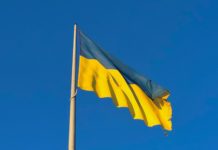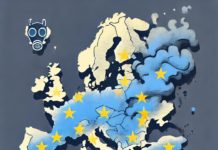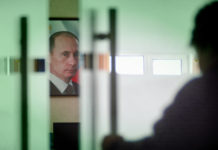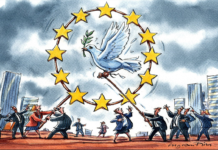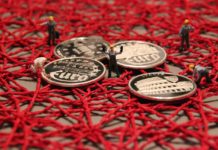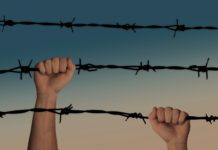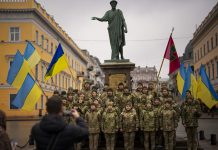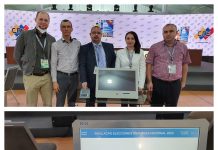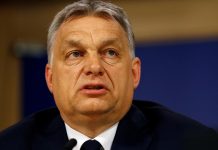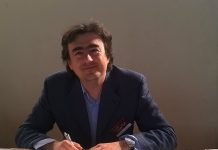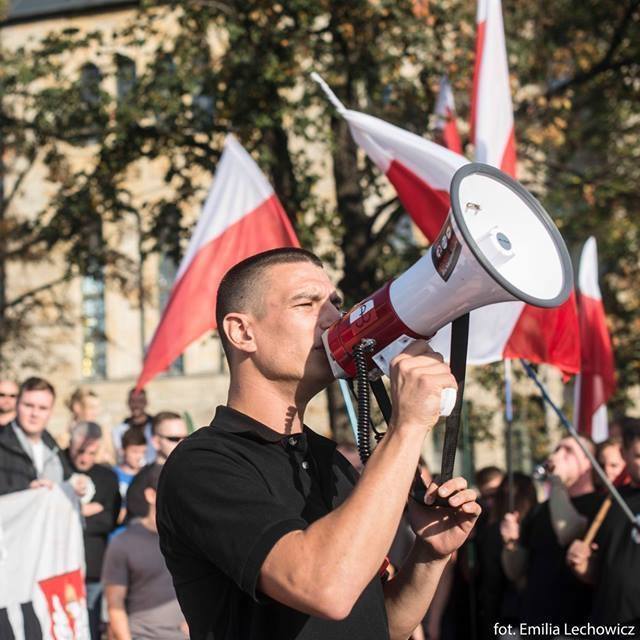Într-o cafenea din rondul Dmowskiego din Varșovia m-am întâlnit cu Ziemowit Przebitkowski, preşedintele All-Polish Youth (APM), una din organizaţiile din spatele marșului de independență, cu câteva ore înainte de startul manifestației. APM este acuzată de rasism, xenofobie, homofobie și fascism de organizații internaționale, precum Human Rights Watch și Națiunile Unite. Ziemowit era pe fugă, fiind implicat direct în organizarea marșului, prin urmare, conversația nu a durat foarte mult. În cadrul acestei scurte conversații, am încercat să aflu ce înseamnă marșul pentru APM, cum reconciliază valorile catolice cu măsurile propuse și cum văd viitorul țării membrii acestei mișcări de tineret.
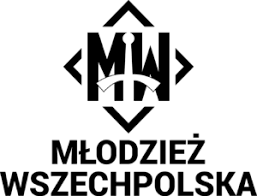
Pentru engleză, click aici. For English, click here.
45north: Care este mesajul principal pe care îl transmite organizația All-Polish Youth – Młodzież Wszechpolska (APM), organizație pe care o reprezinți?
ZP: Organizația noastră este una dintre cele mai mari și importante organizații catolice din Polonia care promovează spiritul naționalist. Suntem catolici naționaliști. Asta înseamnă că trebuie să ne iubim, în primul rând, familia, dar și pe cei din jurul nostru. Analog, așa ar trebuie să ne iubim, în primul rând, propria tară, dar și pe vecinii noștri. Este un mesaj de bună înțelegere. Aceasta este gândirea catolică față de naționalism. Credința este totul pentru noi pentru că reprezintă adevărul. Naționalismul reprezintă doar implementarea politică a doctrinei catolice.
Ești român, România a fost în blocul comunist foarte mulți ani și stii că elemente ale comunismului au rămas. Oamenii care au fost în nomenclatura comunistă sunt prezenți și în actualul guvern. Oamenii mai în vârstă sunt într-o stare latentă, nu mai luptă, cred că trăiesc liber. Tineretul nu crede asta. Noi știm ce vrem. Vrem ca țara să fie guvernată fără influențe din exterior, influențe precum Statele Unite și Israel.
De asemenea, nu dorim ca o Uniunea Europeană controlată de Germania, să își implementeze legea în Polonia. Toate achizițiile și afacerile se fac cu Statele Unite și companii care sunt din Statele Unite, ceea ce nu este normal, ar trebui să se permită comerțul și cu Rusia. Noi promovăm ideea comerțului cu toate părțile, Rusia, Statele Unite, chiar și China. Cred că în politica externă nu există aliați, ci doar afaceri. Cred că ar trebuie să conservăm istoria, pentru a lua decizii mai bune în viitor.
45north: Ce lecții din trecut trage APM, în contextul proximității geografice față de Berlin și Moscova, și cum se împacă asta cu mesajul de bună înțelegere pe care îl predicați mai devreme?
ZP: Bazele catolice pe cărora a fost înființat APM presupun evitarea neînțelegerilor cu alte state. APM nu crede în dependența față de un singur stat, ci într-un echilibru. Nu putem să depindem în mod exclusiv de Statele Unite, deoarece, în realitate, depindem și de Rusia.
În acest sens, se poate da ca și exemplu abordarea politică adoptată de Viktor Orban, acesta ține Ungaria aproape atât de Rusia, cât și de Germania. Așadar, dacă APM ar avea putere politică, în domeniul relațiilor externe aș canaliza-o în direcția menținerii echilibrului politic între state, indiferent de tensiunile existente, care ar putea fi aplanate prin intermediul tacticii politice.
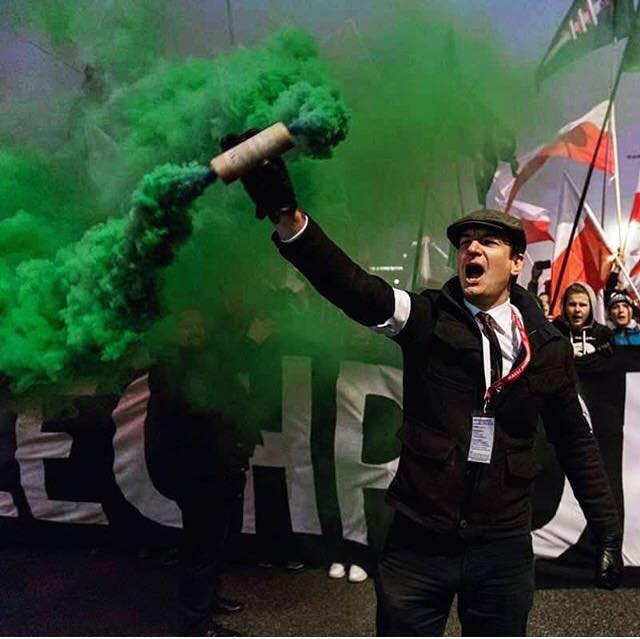
45north: Ce crezi despre fenomenul imigranților? Cum se împacă valorile creștine, catolice și ortodoxe, cu modul în care sunt aceste persoane gestionate, în prezent? Multe persoane printre imigranți sunt refugiați care într-adevăr fug de persecuție și moarte
ZP: Principiile corectitudinii politice din Vest au făcut în așa fel încât dacă spui că nu vrei imigranți, devii automat rasist. Ceea ce vrem este ca polonezii să se întoarcă acasă. Din acest motiv suntem de acord, spre exemplu, ca Marea Britanie să vrea să îi evacueze pe polonezi, deoarece este țara lor. În același fel, și noi avem dreptul să nu acceptăm imigranți.
Iarăși, este o problemă națională extrem de complexă, nu le putem spune refugiaților pur și simplu să plece, astfel am fi considerați rasiști. Guvernul invită sute de mii de imigranți economici. Încercăm așadar, să expunem problema cât mai clar și să subliniem imposibilitatea statului polonez de a oferi cămin pentru imigranți, fie aceștia și refugiați.
45north: Puteți să ne oferiți trei măsuri concrete pe care APM le-ar lua cu scopul aducerii acasă a oamenilor plecați în străinătate?
ZP: În primul rând, cred că administrația este cea mai importantă. La momentul actual, aceasta este subdezvoltată. Această stare de fapt este vizibilă cel mai bine în domeniul afacerilor. Este foarte greu ca în Polonia să pornești o afacere de la zero, întrucât sunt afacerile mari, cu notorietate, care monopolizează întreaga piață și fac dificilă dezvoltarea celor aflate la început de drum.
Acest lucru este des întâlnit la capitolul taxe, care este o a doua măsură ce trebuie îmbunătățită pentru aducerea înapoi acasă a oamenilor plecați. Taxele sunt foarte mari și reprezintă adevărate praguri pentru dezvoltare. Marile companii au echipe de avocați prin care reușesc să găsească metode prin care să plătească cât mai puține taxe.
Și de-al treilea aspect la care trebuie lucrat, în mod evident, stoparea efectivă a fenomenului imigrării. În Polonia, masa de lucru cea mai mare și cel mai des întâlnită este compusă din pakistanezi, musulmani în general. Aceștia cer salarii mici, forța lor de muncă fiind astfel extrem de avantajoasă pentru companiile poloneze. Acești muncitori preiau astfel toate locurile muncă, monopolizând piața, iar conaționalii noștri găsesc ca soluție părăsirea țării.
45north: Ce știi despre România?
ZP: Nu am fost niciodată în România, dar am auzit numai lucruri bune și interesante despre această țară.
Îmi place România pentru ospitalitatea de care am auzit că dă dovadă, dar și pentru o prezență marcantă în sfera istorică, cea a lui Corneliu Zelea Codreanu. Avem 10 cărți obligatorii de citit pentru membrii APM, iar printre acestea se numără și una care face referire la viața lui Corneliu Zelea Codreanu și a organizației Legiunea Arhangelului Mihail. Aș putea spune chiar că Zelea Codreanu este unul din eroii noștri.
După cum spuneam, nu am fost niciodată în România, deși călătoresc foarte mult. Din păcate, nu cunosc personal membrii ai unor organizații similare cu APM în România.
Interviu cu Ziemowit Przebitkowski, preşedintele All-Polish Youth, Polonia: dacă primarul Varșoviei nu ar fi negociat, ar fi fost revolte
In a coffeeshop in Dmowskiego round in Warsaw, I met with Ziemowit Przebitkowski, All-Polish Youth (APM) president, one of the organizations behind the independence march, a couple of hours before the start of the march. APM is accused of racism, xenophobia, homophobia and fascism by international organizations such as Human Rights Watch and the United Nations. Ziemowit was quite busy, being directly involved in organizing the march, so the conversation did not last long. In this brief conversation, I tried to find out what the march means to the APM, how it reconciles the Catholic values with the proposed measures and how I see the future of the country members of this youth movement.
DT: What is the main message of the All-Polish Youth organization – Młodzież Wszechpolska (APM), which you represent?
ZP: Our organization is one of the largest and most important Catholic organizations in Poland that promotes the nationalist spirit. We are nationalist Catholics. That means we have to love, first and foremost, our family, but also those around us. By analogy, we should love our country, first and foremost, but also our neighbors. This is a message of good understanding. This is the Catholic thinking towards nationalism. Faith is everything for us because it represents the truth. Nationalism is only the political implementation of Catholic doctrine.
You are Romanian, Romania has been in the Communist bloc for many years and you know that elements of communism have remained. People who were in the Communist nomenclature are also present in the current government. Older people are in a latent state, no longer fighting, they think they live freely. The youth does not believe that. We know what we want. We want the country to be governed without influences from outside, influences like the United States and Israel.
We also do not want a European Union controlled by Germany to implement its law in Poland. All purchases and affairs are done with the United States and companies that are from the United States, which is not normal, trade should be allowed with Russia as well. We promote the idea of trade with all parties, Russia, the United States, and even China. I believe that there are no allies in foreign policy, only business. I think we should preserve history to make better decisions in the future.
DT: What lessons from the past is APM learning, in the context of geographical proximity to Berlin and Moscow, and how do they reconcile with the the message of good understanding that you’ve preached earlier?
ZP: The Catholic foundations on which APM was established presuppose avoiding misunderstandings with other states. APM does not believe in dependence on a single state, but in a balance. We can not depend exclusively on the United States because, in reality, we also depend on Russia.
In this regard, one can give aS example the political approach taken by Viktor Orban, which holds Hungary almost as much as close to Russia, as to Germany. So, if APM had political power, in the field of foreign relations I would channel it towards maintaining the political balance between states, regardless of the existing tensions, that could be settled through political tactics.
DT: What do you think about the immigrants? How do Christian, Catholic and Orthodox, values reconcile with how these people are currently managed? Many people among immigrants are refugees who really run away from persecution and death.
A: The principles of political correctness in the West have made it so that if you say you do not want immigrants, you become automatically racist. What we want is for the Poles to come home. That is why we agree, for example, that the UK wants to evict Poles because it is their country. In the same way, we also have the right not to accept immigrants.
Again, it is a very complex national problem, we can not simply tell the refugees to leave, so we would be considered racists. The government invites hundreds of thousands of economic migrants. We therefore try to explain the issue as clearly as possible and to emphasize the impossibility of the Polish state to provide a home for immigrants, whether refugees or refugees.
DT: Can you give us three concrete measures that APM would take to bring home people abroad?
ZP: First of all, I think the administration is the most important. Currently, this is underdeveloped. This state of affairs is best seen in business. It is very difficult for Poland to start a business from scratch, as there are big, well-known businesses that monopolize the entire market and make it difficult to develop those at the beginning of the road.
This is often the case with taxes, which is a second step that needs to be improved to bring people back home. The fees are very high and represent true thresholds for development. The big companies have ‘ teams of lawyers that find ways to pay as little taxes as possible.
And the third aspect to which it is obviously necessary to work on is to effectively stop the phenomenon of immigration. In Poland, the largest and most common workforce is made up of Pakistani or Muslims in general. They are demanding low wages, and their workforce is therefore extremely advantageous for Polish companies. These workers take up all the jobs, monopolizing the market, and our countrymen find it a solution to leave the country.
DT: What does today’s march mean to you and to the APM? What is your position on fascist and racist messages such as “White Europe”?
ZP: Today’s march commemorates 100 years of independence for Poland. The first event took place in 2008, with the support of our organization, but also with the help of other organizations sharing the same direction in politics, such as the National Radical Camp – Obóz Narodowo-Radykalny.
As we have already mentioned, our organization is a nationalist one, but unfortunately for liberals, it means automatically nazism or fascism, so manifestations suffer in this sense by a split of opinions in politics.
For liberals, parties such as the ruling party, PiS, are right-wing extremists, so what can I say? In previous years, organizations such as Antifa have tried to block the march, but we have been lucky with the participation of football gallery members who repressed these attempts in the context of a liberal government at that time, which they basically seen as an enemy. APM has of course the same optics. I think that the reason we have grown as a number of members since the first marches in 2010, 2011 is because we had a radically different position from the ruling party, the Civic Platform – PO.
When PiS came to power, they wanted to control this march, but they realized they did not have control over such nationalist crowds. Initially, I did not consider PiS as an enemy, like the PO, but over time we realized they were the same, doing exactly the same things, although they are declared conservative, Catholics. As you probably know, the mayor of Warsaw tried to forbid the march but we negotiated a lot with them and organized it in our conditions. If it were not negotiated, there would certainly have been riots.
DT: What do you know about Romania?
ZP: I’ve never been to Romania, but I’ve only heard good and interesting things about this country.I love Romania for the hospitality I have heard that it shows to foreigners, but also for a significant presence in the historical sphere, that of Corneliu Zelea Codreanu. We have 10 mandatory books to read for APM members, among them one referring to the life of Corneliu Zelea Codreanu and of the Legion of Archangel Michael. I could even say that Zelea Codreanu is one of our heroes.
As I said, I have never been to Romania, although I travel a lot. Unfortunately, they do not personally know members of organizations similar to APM in Romania.




